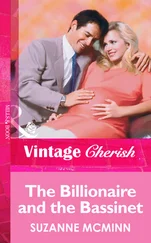Somerset Maugham - The Moon and Sixpence
Здесь есть возможность читать онлайн «Somerset Maugham - The Moon and Sixpence» весь текст электронной книги совершенно бесплатно (целиком полную версию без сокращений). В некоторых случаях можно слушать аудио, скачать через торрент в формате fb2 и присутствует краткое содержание. Жанр: Классическая проза, на английском языке. Описание произведения, (предисловие) а так же отзывы посетителей доступны на портале библиотеки ЛибКат.
- Название:The Moon and Sixpence
- Автор:
- Жанр:
- Год:неизвестен
- ISBN:нет данных
- Рейтинг книги:5 / 5. Голосов: 1
-
Избранное:Добавить в избранное
- Отзывы:
-
Ваша оценка:
- 100
- 1
- 2
- 3
- 4
- 5
The Moon and Sixpence: краткое содержание, описание и аннотация
Предлагаем к чтению аннотацию, описание, краткое содержание или предисловие (зависит от того, что написал сам автор книги «The Moon and Sixpence»). Если вы не нашли необходимую информацию о книге — напишите в комментариях, мы постараемся отыскать её.
The Moon and Sixpence — читать онлайн бесплатно полную книгу (весь текст) целиком
Ниже представлен текст книги, разбитый по страницам. Система сохранения места последней прочитанной страницы, позволяет с удобством читать онлайн бесплатно книгу «The Moon and Sixpence», без необходимости каждый раз заново искать на чём Вы остановились. Поставьте закладку, и сможете в любой момент перейти на страницу, на которой закончили чтение.
Интервал:
Закладка:
"Children. How can you care for the opinion of the crowd, when you don't care twopence for the opinion of the individual?"
"We're not all reasonable beings," I laughed.
"Who makes fame? Critics, writers, stockbrokers, women."
"Wouldn't it give you a rather pleasing sensation to think of people you didn't know and had never seen receiving emotions, subtle and passionate, from the work of your hands? Everyone likes power. I can't imagine a more wonderful exercise of it than to move the souls of men to pity or terror."
"Melodrama."
"Why do you mind if you paint well or badly?"
"I don't. I only want to paint what I see."
"I wonder if I could write on a desert island, with the certainty that no eyes but mine would ever see what I had written."
Strickland did not speak for a long time, but his eyes shone strangely, as though he saw something that kindled his soul to ecstasy.
"Sometimes I've thought of an island lost in a boundless sea, where I could live in some hidden valley, among strange trees, in silence. There I think I could find what I want."
He did not express himself quite like this. He used gestures instead of adjectives, and he halted. I have put into my own words what I think he wanted to say.
"Looking back on the last five years, do you think it was worth it?" I asked.
He looked at me, and I saw that he did not know what I meant. I explained.
"You gave up a comfortable home and a life as happy as the average. You were fairly prosperous. You seem to have had a rotten time in Paris. If you had your time over again would you do what you did?"
"Rather."
"Do you know that you haven't asked anything about your wife and children? Do you never think of them?"
"No."
"I wish you weren't so damned monosyllabic. Have you never had a moment's regret for all the unhappiness you caused them?"
His lips broke into a smile, and he shook his head.
"I should have thought sometimes you couldn't help thinking of the past. I don't mean the past of seven or eight years ago, but further back still, when you first met your wife, and loved her, and married her. Don't you remember the joy with which you first took her in your arms?"
"I don't think of the past. The only thing that matters is the everlasting present."
I thought for a moment over this reply. It was obscure, perhaps, but I thought that I saw dimly his meaning.
"Are you happy?" I asked.
"Yes."
I was silent. I looked at him reflectively. He held my stare, and presently a sardonic twinkle lit up his eyes.
"I'm afraid you disapprove of me?"
"Nonsense," I answered promptly; "I don't disapprove of the boa-constrictor; on the contrary, I'm interested in his mental processes."
"It's a purely professional interest you take in me?"
"Purely."
"It's only right that you shouldn't disapprove of me. You have a despicable character."
"Perhaps that's why you feel at home with me," I retorted.
He smiled dryly, but said nothing. I wish I knew how to describe his smile. I do not know that it was attractive, but it lit up his face, changing the expression, which was generally sombre, and gave it a look of not ill-natured malice. It was a slow smile, starting and sometimes ending in the eyes; it was very sensual, neither cruel nor kindly, but suggested rather the inhuman glee of the satyr. It was his smile that made me ask him:
"Haven't you been in love since you came to Paris?"
"I haven't got time for that sort of nonsense. Life isn't long enough for love and art."
"Your appearance doesn't suggest the anchorite."
"All that business fills me with disgust."
"Human nature is a nuisance, isn't it?" I said.
"Why are you sniggering at me?"
"Because I don't believe you."
"Then you're a damned fool."
I paused, and I looked at him searchingly.
"What's the good of trying to humbug me?" I said.
"I don't know what you mean."
I smiled.
"Let me tell you. I imagine that for months the matter never comes into your head, and you're able to persuade yourself that you've finished with it for good and all. You rejoice in your freedom, and you feel that at last you can call your soul your own. You seem to walk with your head among the stars. And then, all of a sudden you can't stand it any more, and you notice that all the time your feet have been walking in the mud. And you want to roll yourself in it. And you find some woman, coarse and low and vulgar, some beastly creature in whom all the horror of sex is blatant, and you fall upon her like a wild animal. You drink till you're blind with rage."
He stared at me without the slightest movement. I held his eyes with mine. I spoke very slowly.
"I'll tell you what must seem strange, that when it's over you feel so extraordinarily pure. You feel like a disembodied spirit, immaterial; and you seem to be able to touch beauty as though it were a palpable thing; and you feel an intimate communion with the breeze, and with the trees breaking into leaf, and with the iridescence of the river. You feel like God. Can you explain that to me?"
He kept his eyes fixed on mine till I had finished, and then he turned away. There was on his face a strange look, and I thought that so might a man look when he had died under the torture. He was silent. I knew that our conversation was ended.
Chapter XXII
I settled down in Paris and began to write a play. I led a very regular life, working in the morning, and in the afternoon lounging about the gardens of the Luxembourg or sauntering through the streets. I spent long hours in the Louvre, the most friendly of all galleries and the most convenient for meditation; or idled on the quays, fingering second-hand books that I never meant to buy. I read a page here and there, and made acquaintance with a great many authors whom I was content to know thus desultorily. In the evenings I went to see my friends. I looked in often on the Stroeves, and sometimes shared their modest fare. Dirk Stroeve flattered himself on his skill in cooking Italian dishes, and I confess that his spaghetti were very much better than his pictures. It was a dinner for a King when he brought in a huge dish of it, succulent with tomatoes, and we ate it together with the good household bread and a bottle of red wine. I grew more intimate with Blanche Stroeve, and I think, because I was English and she knew few English people, she was glad to see me. She was pleasant and simple, but she remained always rather silent, and I knew not why, gave me the impression that she was concealing something. But I thought that was perhaps no more than a natural reserve accentuated by the verbose frankness of her husband. Dirk never concealed anything. He discussed the most intimate matters with a complete lack of self-consciousness. Sometimes he embarrassed his wife, and the only time I saw her put out of countenance was when he insisted on telling me that he had taken a purge, and went into somewhat realistic details on the subject. The perfect seriousness with which he narrated his misfortunes convulsed me with laughter, and this added to Mrs. Stroeve's irritation.
"You seem to like making a fool of yourself," she said.
His round eyes grew rounder still, and his brow puckered in dismay as he saw that she was angry.
"Sweetheart, have I vexed you? I'll never take another. It was only because I was bilious. I lead a sedentary life. I don't take enough exercise. For three days I hadn't ..."
"For goodness sake, hold your tongue," she interrupted, tears of annoyance in her eyes.
His face fell, and he pouted his lips like a scolded child. He gave me a look of appeal, so that I might put things right, but, unable to control myself, I shook with helpless laughter.
We went one day to the picture-dealer in whose shop Stroeve thought he could show me at least two or three of Strickland's pictures, but when we arrived were told that Strickland himself had taken them away. The dealer did not know why.
Читать дальшеИнтервал:
Закладка:
Похожие книги на «The Moon and Sixpence»
Представляем Вашему вниманию похожие книги на «The Moon and Sixpence» списком для выбора. Мы отобрали схожую по названию и смыслу литературу в надежде предоставить читателям больше вариантов отыскать новые, интересные, ещё непрочитанные произведения.
Обсуждение, отзывы о книге «The Moon and Sixpence» и просто собственные мнения читателей. Оставьте ваши комментарии, напишите, что Вы думаете о произведении, его смысле или главных героях. Укажите что конкретно понравилось, а что нет, и почему Вы так считаете.










